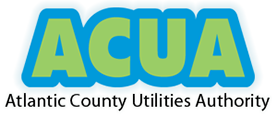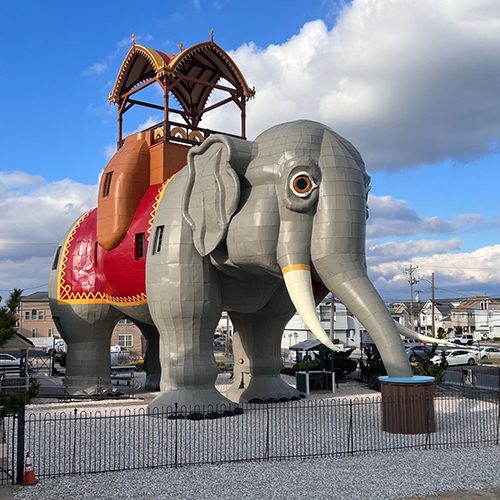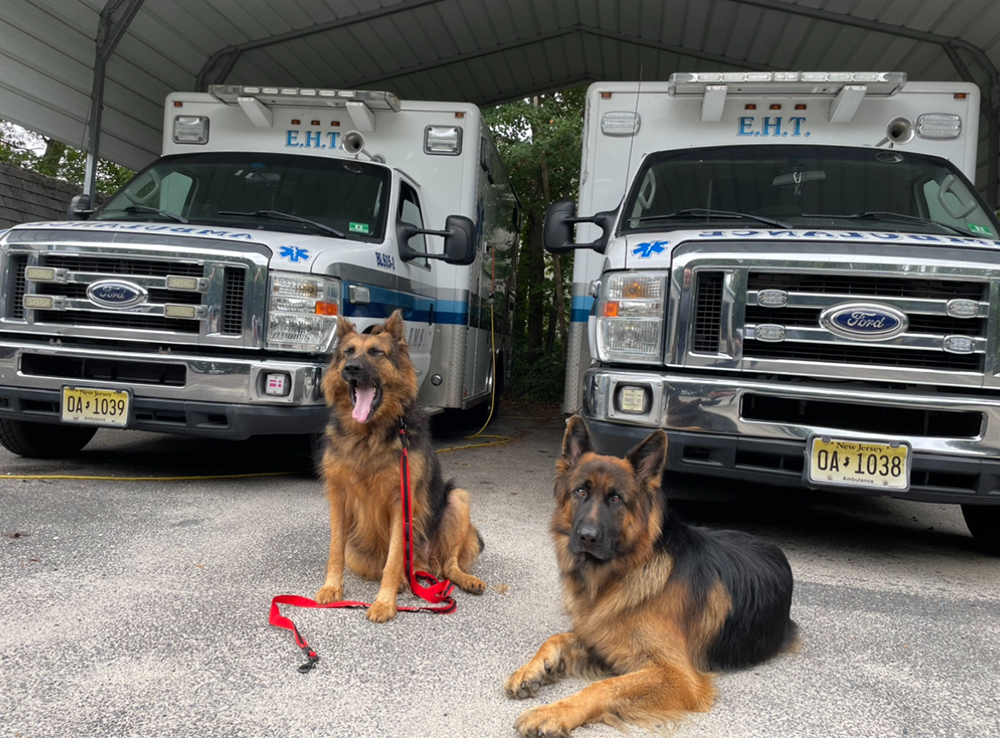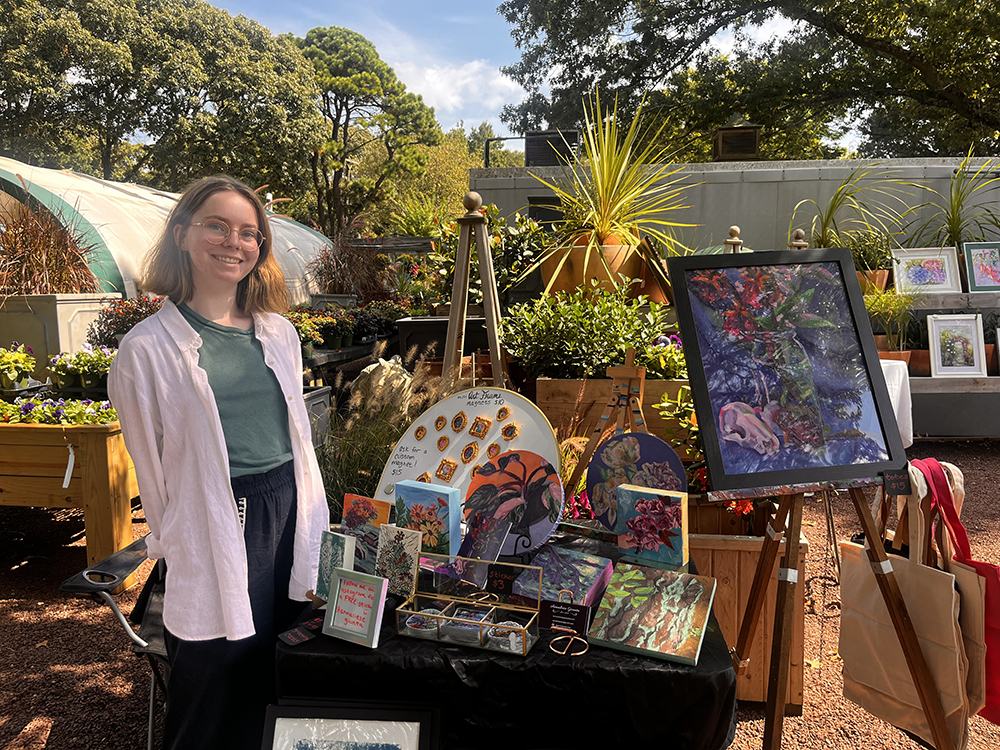ACUA Explains
Have you ever wondered why some items are accepted in your curbside recycling bin while others are not? Why a plastic fork is not allowed but a plastic bottle is? There are many complex explanations that can be given, but here are three basic reasons items are deemed unacceptable:
1.The item may be inefficient or even dangerous to sort.
Items from your curbside recycling bin are brought to the Atlantic County Utilities Authority (ACUA) in Egg Harbor Township to be sorted at ACUA’s Recycling Center by Republic Services, ACUA’s Recycling Partner. All those bottles, cans, paper and cardboard are emptied from collection trucks onto the tipping floor and then moved to the processing area where items are first sorted by the hands of Republic’s employees. That’s why it’s crucial that dangerous items like needles and syringes never make their way into curbside bins.
Next, materials pass through a series of machines that were built specifically to sort items accepted by the ACUA’s single-stream program. When other items like plastic bags, batteries, hazardous chemicals or large pieces of metal make their way through the machines, they can cause costly breakdowns, or worse; starting fires or resulting in injuries to employees.
2. There is no market for the item.
Recycling markets help dictate the items that are accepted curbside. Without paper mills eager to accept used paper for reuse there would be no practical reason to collect paper in our recycling bins. Recycling markets are impacted by many things, from global economic changes to changes in consumer behavior. Think about how many people read the newspaper on their phone and how that might impact paper markets or how online shopping and delivery impacts the demand and availability for cardboard for boxes.
Many complex factors cause recycling markets fluctuate and change, but recycling is a long-term commitment that continues to benefit the environment and our communities. It’s important to understand what’s accepted in your local recycling program and to look for items that are made with recycled content. Purchasing products (and asking for them when you don’t see them) sends a strong message to encourage businesses to keep using recycled materials in their products.
3. The item diminishes the value of other recyclables.
Another reason an item may not be accepted is because it can contaminate other recyclables. For example, a plastic take-out container with food will contaminate newspaper that’s in the same bin, making it unacceptable to paper mills. Pyrex, although made of glass, is treated with chemicals that make glass from bottles lose its value when mixed together.
Bottle caps and lids are often made from a different type of plastic than the bottle or container itself. Removing caps improves the quality of the bottles being processed. It’s helpful to remove caps and to place them in the trash, as very small items, like loose caps are difficult to sort and process. An added bonus; removing caps also reminds people to empty their containers before putting them in the recycling bin.
What You Should Never Recycle
Now that you have some insight into why some items are deemed unacceptable, here is a reminder of those items that should NEVER be placed in your curbside recycling bin.
Syringes or Needles – These pose significant health risks to workers on the sorting line. Medical waste should be disposed of properly at a medical facility. See acua.com/medicine for additional information.
Plastic Bags – Bags get tangled in the sorting machinery at the recycling center and can cause significant downtime and damage equipment. Bags can be recycled through designated bins at grocery and department stores. Bags can be reused or repurposed at home as a trash can liner. An even better option is to keep some reusable bags with you so you can avoid having to deal with single use plastic bags at all!
Scrap Metal and Appliances – These items can be dangerous and are way too large for sorting equipment. Check with your local public works department for disposal information.
Electronics– Electronics contain harmful yet valuable materials. They are banned from both the trash and recycling bin and must be taken to a certified recycler. See acua.com/electronics for additional information.
Plastics that contained hazardous chemicals – Containers that held chemicals like motor oil or antifreeze are dangerous to employees and can cause fires.
Food Waste – Food residue contaminates recyclables and diminishes their value.
Styrofoam – Styrofoam is usually contaminated with food residue, and there is not a viable market for this material.
Mirrors, light bulbs, vases, Pyrex, window glass, cups, dishware, shelving – These glass items have been treated with chemicals that make them different than glass bottles. Please note CFL lightbulbs contain mercury and must be disposed of safely. See acua.com/cfls for additional information.
Ropes, hoses or any item that can get tangled around equipment – These items can greatly disrupt the sorting system, break equipment and lead to very costly downtime.
Like other businesses, the recycling industry continues to innovate as trends change and new items and issues are discovered. Single-stream collection is just one example of that continued innovation. To ensure that recycling is efficient and effective in our local community, please take a minute to review your recycling guidelines before placing an item in the bin.
When in doubt, we encourage residents to go to ACUA’s website www.acua.com/recycling101 to review our single-stream guidelines, use ACUA’s Waste Wizard (acua.com/wastewizard), or just ask! You can reach ACUA through the website’s live chat, email, Facebook, Twitter or by phone at 609.272.6950.






